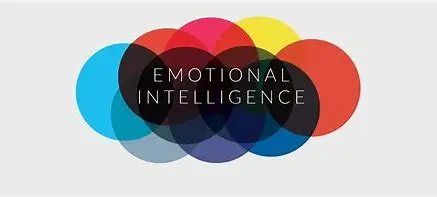What a dichotomy! We hire people for their IQ and fire them for want of EQ, isn’t it true? Look back into your own organizations and ascertain the reasons that led to the exit of people both voluntarily and those who were asked to leave. Apparently, people, especially leaders, were handed over the pink slips on the basis of their poor performance; however, if you go deeper, you will realize that most of the issues correspond to inappropriate people management rather than inadequate technical knowledge. A senior manager working in the finance department of a multinational company once told me, “While I was doing my chartered accountancy, I thought I would encounter complex accounting problems at my job, but now at the workplace, I realize most of my problems are related to people”.
Daniel Goleman, who carved the term ‘Emotional Quotient’ or ‘EQ’, defines it as a combination of self-awareness, selflessness, self-motivation, empathy, and the ability to love and be loved by people around us. People with high emotional intelligence not only succeed at work but also build thriving, long-lasting, and meaningful relationships. No doubt, intellect is a must for excellent performance, and in order to be successful, cognitive skills such as thinking about the big picture and having a long-term vision are two essentials that a leader must possess. Nevertheless, successful leaders carry a different set of competencies that distinguish them from the rest. Apart from excelling in key performance areas, they very easily get along with other people, keep themselves and others motivated, persist till they succeed, are able to control their emotions/temptation, stay focused on their own goal, and work together as a team to achieve common goals.
It is true that a person with a high IQ and a low EQ, i.e. without adequate self-control, is like a vehicle having only an accelerator but no gears or brakes. Such a vehicle is bound to meet with an accident. People with low EQ find it difficult to maintain good relationships with others, and at the same time, they are unable to perform well at work. Often, it is observed that individuals with high IQs become selfish, inconsiderate/insensitive towards other people. This not only restricts them from performing but makes their team members feel disgruntled, which ultimately limits their potential.
My neighbour’s son, a fresh pass-out from IIT-Kanpur, was recruited as a team leader by a multinational IT company. While I was congratulating him, he very innocently asked, “Uncle, I do not understand why the company has given me this position. You know, in my team, there are people who have done their master’s degree from IIMs and are even senior to me”? I tried to explain to him that he is lucky as his company appreciates people with high EQ over IQ. But it did not satisfy him. Recently, I met him; he was bubbling with enthusiasm and told me. “Uncle, you were right. Last month, I got promoted, and this time, I asked the same question to my boss that I asked you a few years back”. He replied, “Apart from technical expertise, we look for qualities that help an individual to create a high-performing team”.
This raises a question: is EQ an inherent quality like in the case mentioned above, or can it be developed like any other competency? The good news is, ‘yes’, it can be developed as any other skill, and that too at any stage of one’s career. But the irony is that the premier B-schools, which are considered to be the fortress of management education, have yet to appreciate this fact. They are failing in their duty to inculcate in their students these vital components that are essential for leadership success. Over a period of time, these institutions have become the stronghold of graduate engineers, mostly from IITs. On average, 70% plus students of various IIMs across India are engineers.
The silver line is that institutions such as XLRI and IIMC have initiated changes in their admission process to bring diversity to their students. According to Vishwa Ballabh, the admissions chairperson of XLRI, “We need versatile students who have equal knowledge of business, economics, politics and social developments so as they may excel in the management field”. Similar sentiments were also expressed by Sanjit Singh, admissions chairperson of IIMC, who said, “We seriously think our campus needs students from non-engineering backgrounds. This diversity in student population will add value to classroom exchanges, and we will also be able to create managers with diverse skills,”
I hope other institutes will follow in their footsteps soon!!!
Let us know if you would like to unlock the full potential of your leadership team through Assessments & training together! Visit our website, www.assesspro.in, to learn more about AssessPro.
If you need any specific information, please get in touch with us @ vivek@assesspro.in, message us on WhatsApp, or call us at 91-9739197566.Published by Vivek Mehrotra


